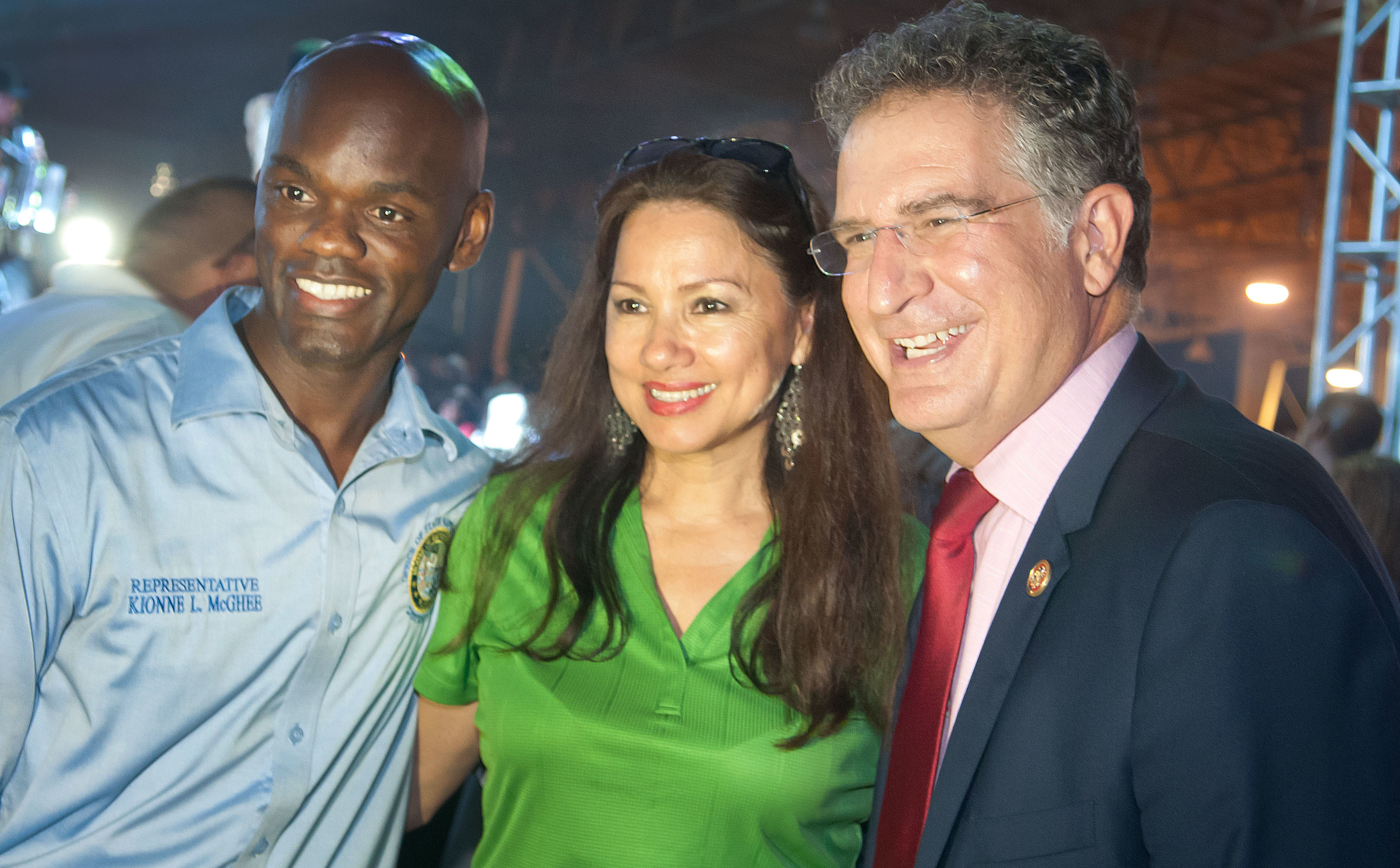The 2014 midterm election cycle saw many competitive Democratic House districts fall, including the race for Florida’s 26th and southernmost district. Both candidates were Cuban-Americans running in districts with large Hispanic populations, many of whom are Cuban voters. Surprisingly, a district with a strong Cuban constituency at its core elected Democrat Joe Garcia in 2012 and only ousted him this year due to a series of corruption scandals. Both Garcia and his Republican challenger, Carlos Curbelo, ran as moderate centrists. Both candidates are in favor of same-sex marriage and welcome President Obama’s liberalization of the Cuban embargo. Given that Cubans have historically been card-carrying Republican Party members for decades, Curbelo’s choice to not run as a Tea Party candidate demonstrates a significant shift in Cuban politics.
Cubans came to the United States and quickly became a powerful Republican force, opposing Kennedy’s politics after his botched Bay of Pigs invasion where many Cubans were killed and imprisoned and opposing any left-leaning politicians for being too soft on communism. Since the 1960s, Cubans have been a uniquely conservative Hispanic voting bloc. The impact of this small segment of the Hispanic community has been, since the first wave of immigrants, uniquely significant. Many of the Cubans who fled had worked for the government that was overthrown. They were the wealthy, educated, elite of Cuba with an obvious interest in the political systems on the island that eventually extended to the United States. For many years, this elite’s primary political goal was to “drive the Castro regime from power” which put them squarely on the side of conservatives and anti-Communists like Reagan. Today, those hardline views are beginning to fade as older generations and their children begin to focus on Cuban-American, rather than simply Cuban, politics.
Immigration reform has been an important element in that shifting focus. Cubans, especially young ones, have begun to sympathize more with the plight of fellow Hispanics and have joined them in advocating for immigration reform. Throughout the campaign for District 26, immigration reform was a more important topic than Cuba. Both candidates embraced the calls for immigration reform, following the lead of other prominent Cuban Republican politicians in southern Florida, namely Representatives Ileana Ros-Lehtinen and Mario Diaz-Balart. Curbelo called immigration reform, “an economic issue,” while Garcia claimed that there is nowhere in the United States with more to gain from immigration reform than southern Florida.
Hispanics of different varieties may favor comprehensive reform to make it easier for their friends, families or countrymen to move to the United States. Cubans, on the other hand, seem not to be worried about immigration in the same way. Many Cubans see it as a way for Hispanics as a whole to be respected and treated fairly. As more Hispanics from across Latin America migrate to Miami and become ingrained in the city’s Hispanic culture, once dominated by Cubans, it seems as if Cubans have begun to empathize with their fellow Hispanics and to see themselves as a community with common ties and struggles. If Mexican and Central Americans are treated unfairly, Cubans are feeling their pain.
Cubans changing attitudes toward Cuba are also a significant factor in the political shift. As the older generation ages, their American children have become less inclined to favor strict economic and travel sanctions against the country to which they have relatively few ties. Even more so, as Cuban-American Millennials become politically conscience voters, they see the Cuban embargo as needlessly crippling to the average Cuban and not to the government it is meant to cripple. Giancarlo Sopo, a Cuban-American born in Miami, whose own grandfather was murdered by the Castro regime, called the embargo simply a “distraction from the atrocities of the regime.” Post-revolutionary Cuban immigrants see the sanctions as more of a burden on themselves and their Cuban families than on the Castros. Most Cuban politicians are still relatively hard-line towards safeguarding aspects of the embargo, but support for Obama softening it has gained traction. Both Curbelo and Garcia were in favor of lifting burdensome travel restrictions.
Leaders in the Cuban community are beginning to shift leftward as well. In a 2008 editorial in the Washington Post, notable Cuban-American rights advocate and chairman of the Cuban American National Foundation (CANF), Jorge Mas, endorsed President Obama, claiming that his “forward looking and proactive approach” towards Cuban relations would be more beneficial to the Cuban people than President Bush’s “blunders.” In the editorial, he wrote that although the vast majority of CANF’s members are Republican, it was time to put partisan politics aside in favor of the Cuban people’s best interests. Jorge Mas’s father was a legendary advocate for Cuban rights, especially in the Miami Cuban community. While his father was a strong supporter of Republicans like President Reagan, Jorge Mas’s endorsement of President Obama – going so far as to hold a fundraiser for Senate Democrats – illustrates the way Cuban politics are shifting. Further, Jorge Mas’s company, MasTec, was Democrat Joe Garcia’s largest supporter.
Finally, the simple truth that Cubans are less connected to the island than they once were seems to be moving Cubans leftward. Although there is certainly no growing support for the Castro regime, voting based solely on this issue is largely a thing of the past. Cuban-Americans ties to Cuba have been weakened over the past decades and their ties to the larger Hispanic community in the United States have been strengthened. President Obama nearly captured the majority of the Cuban vote in 2012, something that would have been a complete shock 20 years ago. This trend will be formally tested during the 2016 presidential election, especially if a Democratic candidate can win the Cuban vote for the first time.
